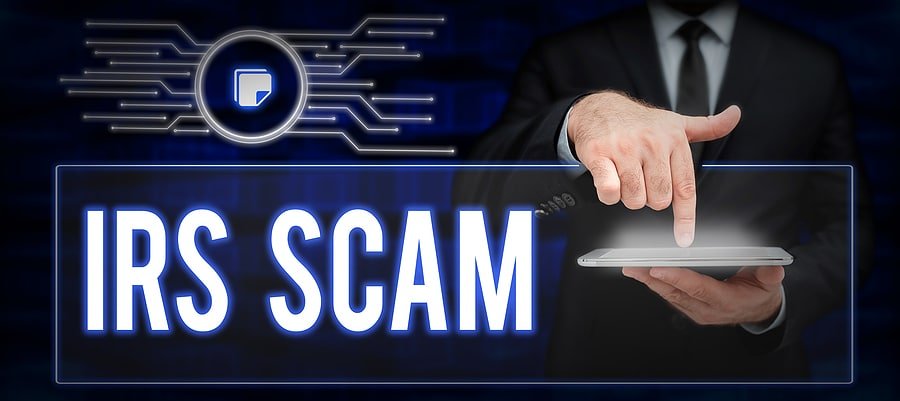Have you ever received a phone call from the IRS – or from someone claiming to be from the IRS – about an alleged tax debt?
If so, you need to know that any such phone call is almost certainly a scam also known as the IRS Collection Scam!
The IRS will NEVER call you trying to demand payment for overdue taxes.
The IRS just doesn’t work that way.
So what should you do if you get a call from a person trying to get you to pay a supposed IRS tax bill? Just hang up the phone immediately, because all that person wants to do is take your hard-earned money from you.
The IRS is aware of scammers and other con artists prey on individuals by phone (and other means, like email, text messages, etc.). In response, the IRS has urged the public to stay alert for fake IRS scam phone calls.
Avoid the IRS Collection Scam
This is why the IRS’s website specifies that the IRS will not:
- Call you to demand immediate payment without first sending you a bill in the mail.
- Demand that you pay taxes without the ability to question or appeal the amount you may (or may not) owe.
- Require that you pay your taxes a certain way (such as by using prepaid debit cards or wire transfers).
- Ask for your credit card numbers or debit card numbers over the phone.
- Threaten to bring in immediate police or other agencies to arrest you for failure to pay alleged tax debt.
How the IRS Actually Contacts Individuals
Any time the IRS does contact you, in the overwhelming majority of cases they’re going to send you a letter and give you notification—which will be sent through the United States Postal Service.
But what about getting a surprise phone call or a surprise visit from an IRS auditor or agent?
No, the IRS is not just going to show up on your doorstep out of the blue. Instead, if a representative of the IRS does show up to your home or business, you have right to verify their credentials and, later, to appeal any decision. Furthermore, they will not ask for immediate payment through unverifiable means.
Read 30 scams you need to avoid!
How Will You Spot Legitimate IRS Credentials?
Anyone from the Internal Revenue Service will always carry two forms of official credentials: one is called a “pocket commission” and the other ID is a HSPD-12 card. HSPD-12 is a government-wide standard for secure and reliable forms of identification for federal employees and contractors.
Again, you have the right to see these credentials, so any bonafide IRS representative who visits you will not be offended if you ask to see these documents.
As for phone calls, it’s not standard or routine policy at all for the IRS to call you.
The IRS says that only under “special circumstances” will the agency will call, such as when they’ve already sent several written letters in the mail and you still have overdue taxes, or when the IRS needs to secure a delinquent tax return or a delinquent employment tax payment, or to tour a business as part of an audit or during criminal investigations.
Bottom line: Don’t fall for it when you get that call, that email, or that text message that’s supposedly from the IRS.
Remember: there are all kinds of fraudsters out there. But those are just con artists trying to get your money. While the IRS has partnered with debt collection companies to handle outstanding taxes, be aware that the process is always formal and won’t come as a surprise.
Were you or someone you know a victim of the IRS Collection Scam?










